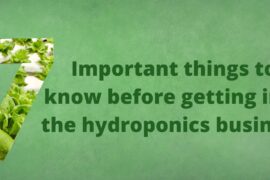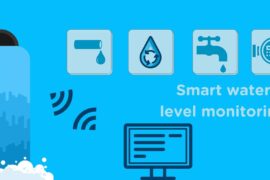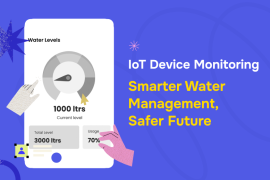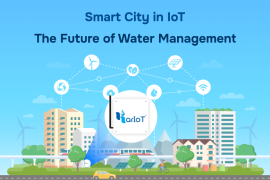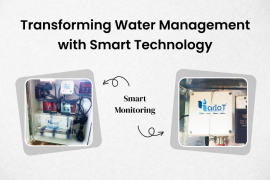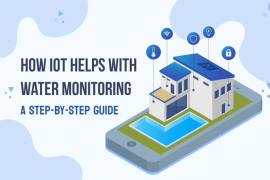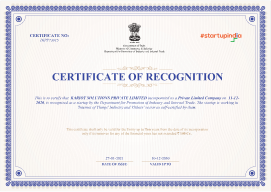The world water crisis has driven many organizations to invest in water management systems. In this article, we are going to showcase some of the key advantages of IoT technology for water management systems. We will also explore how these advanced solutions can help enterprises and apartments become more sustainable in the future.
Smart water management (SWM) Meaning
Smart water management (SWM) systems aim to save water and energy by enabling more efficient water usage. SWM relies on the Internet of things technology. Here, IoT uses sensors to collect water-related data in a concerned area, consumption of electricity to pump water, pressure changes, and revolving energy when there is a break in the system. This data subjects eradicating or eliminating wastage. For example, if an amount of hydropower is in high need for the supply of drinking water, then it is necessary to install a storage tank. It automatically leads to reduce the amount of power.
Kariot technology is designed to give the Smart water management system full control of its pumps and valves so that it decides when to turn them on or off. There are also sensors to measure pressure, temperature, flow, level, and leaks.
Modern Smart Water Technologies
Technology is advancing and making life much easier. One example of this is IoT water management systems. They can save a lot of time and money while also ensuring that everyone gets the same level of water quality. These systems are based on three components:
Most people have heard about smart homes, but they don’t know, what smart water is. It’s easier than you might think to invest in these cutting-edge technologies for your home.
The system is connected to many different types of appliances such as faucets, showerheads, toilets, etc. It also instructs users when they need to change their filters and provides alerts if there’s a leak in the system.
Objectives of smart water management
The basic goal of smart water management is to use and recycle water resources in a fair and sustainable method. Water is becoming an even more valuable resource due to rising population, environmental concerns, and strain on the food and agriculture sectors.
Water management technologies and activities aim to achieve the following goals in this regard:
- Reduce the amount of water wasted in agriculture, industries, and electricity generation. It entails the use of high-tech agricultural practices such as precision farming, smart irrigation, crop water management, real-time water metering, and other Internet of Things applications.
- Improve water quality and protect it from contamination from chemical waste and natural pollution like acidification. Companies use sensors and IoT technologies for real-time monitoring and control to improve and maintain water quality.
- Water systems such as water collectors, treatment facilities, distribution mains, and wastewater recycling centers can all be made more efficient. Companies may use IoT and data solutions for asset management to maintain crucial parameters like water pressure, temperature, and flow close at hand, incorporate predictive maintenance and reduce equipment damage and downtime.
- Smart Water Management uses leak & moisture sensors to control water leakage. The leakage control is crucial to protect water resources & budget. Nearly three billion dollars is on the budget list each year to repair leakage damages.
- Use IoT-based water management technologies to track your consumption. It aids in the optimization and management of water resources at various levels – families, towns, countries, and the entire globe.
Benefits of using IoT for water management
IoT water management solutions assist industry stakeholders, governments, and typical consumers in achieving their sustainability and efficiency goals. In this industry, the Internet of Things has already given birth to a new concept: the Internet of Water. It necessitates connecting all systems and players in the water supply chain — water sources, treatment plants, industrial water management systems, distribution facilities, utility and clean energy companies, and consumers, among others — and arming decision-makers with critical information about the state of water resources and equipment used in the supply chain.
IoT may be the best technology for equipping the supply chain with essential procedures, data applications, and tools. And here’s why:
Transparency
One of the most significant advantages of IoT-based smart water management is that it increases the transparency of all operations in the water supply chain. Different stakeholders get valuable insights into their resources and system performance thanks to the data collected across the supply chain. As a consequence, they are in a better position to make intelligent decisions about how to enhance their operations.
Immediate response
Another advantage of incorporating intelligent water management systems is the capacity to detect or even anticipate problems and respond quickly to limit harm. Real-time monitoring of water quality and chemical composition, for example, allows for the detection of even minor pollution and prompt intervention before it becomes problematic.
Automation and optimized use of human resources
Managers may employ IoT water management systems to partially or entirely automate some procedures and maximize the utilization of human resources. The degree and extent of automation vary depending on the industry and individual company requirements. Smart water supply companies and utility networks, for instance, may use linked meters, real-time monitoring systems, and dynamic pricing models to automate the full lifecycle of supplying water to customers.
Optimized cost
Automation, better human resource management, a data-driven strategy, and a proactive approach to equipment maintenance and resource management all add up to considerable cost savings. One of the reasons why water firms are investigating the use of IoT in water management is to lower long-term operating expenses.
Sustainability
Many retrofit and innovation initiatives, not just in the smart water business, but in any other area such as energy, construction, logistics, and so on, have sustainability aims at their heart. Smart Water Technology is an optimal source of cost savings and efficiency. It also helps attain environmental goals, reduces carbon footprint, and water conservation.
IoT applications in water management
Many IoT water management systems and big data solutions are available on the market, demonstrating the influence these technologies have on the overall sector. Bosch, one of the IoT industry’s pioneers, offers a sensor-based solution for smart on-demand irrigation. It monitors plant water levels to ensure that they receive just enough water to provide the maximum nutritional value and output. The weather prediction is paired with the data collected on the plant’s “thirst.” Based on this data, AI algorithms construct the optimal irrigation plan, assisting farmers in maintaining optimal crop health.
IoT water management solutions at KarIoT
KarIoT offers a water management solution that uses IoT technology to help people save water. This technology allows for instant alerts when a leak is detected or for automatic shut-offs in case of high water pressure.


